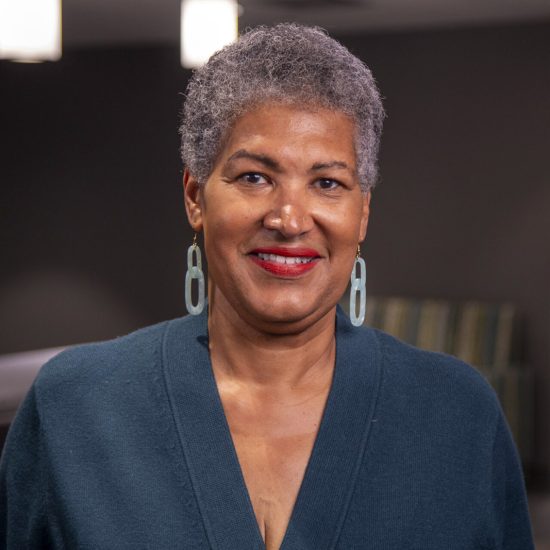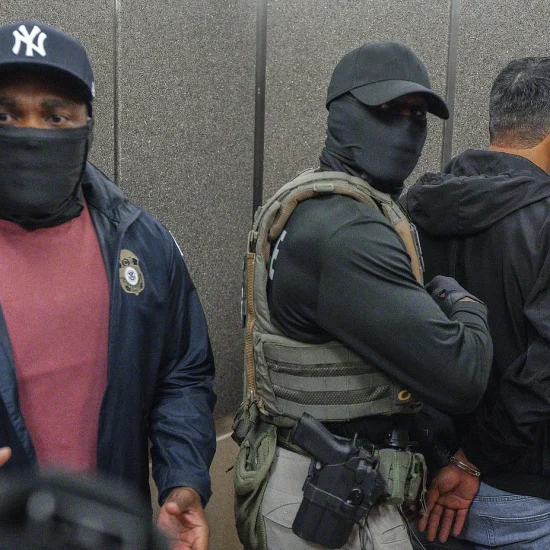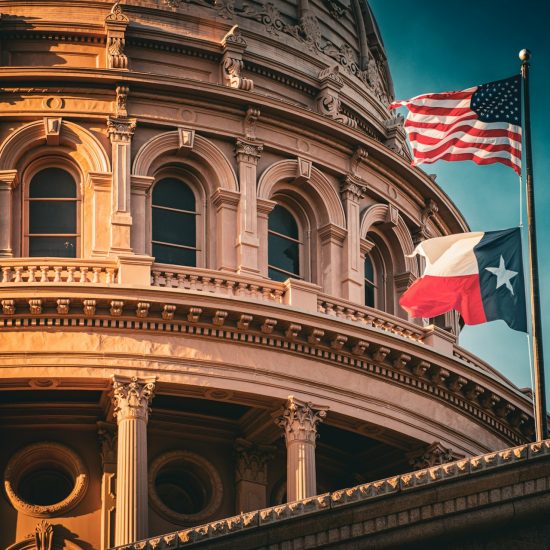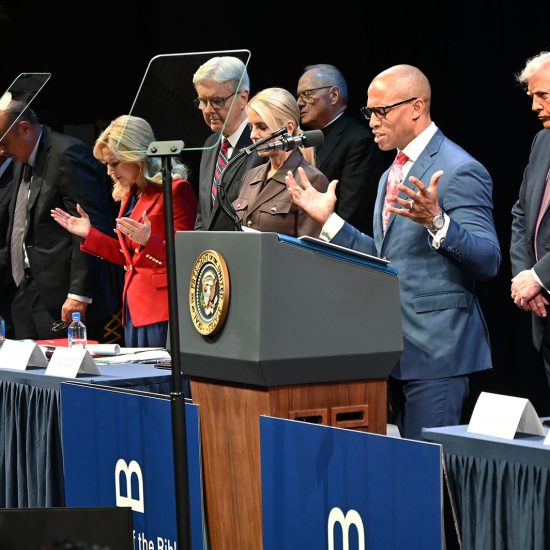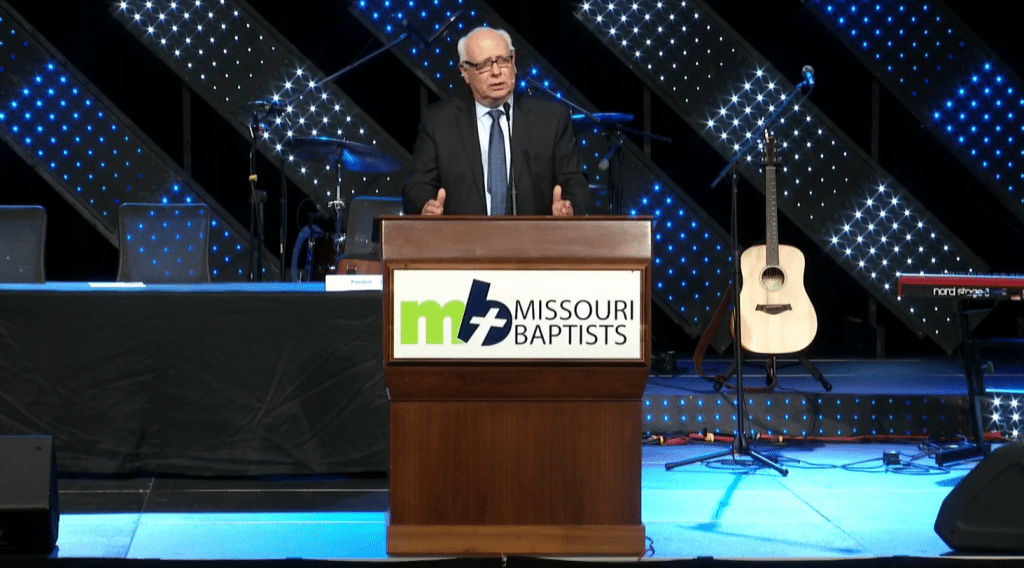
For the last five years or more, the Missouri Baptist Convention’s Executive Director, John Yeats, and its Executive Board have presided over the ruination of two of the three remaining universities affiliated with the MBC.

Russell Jackson
The Higher Learning Commission — which accredits nearly 1,000 universities in 18 states — has only 10 universities that are currently on probation. The MBC appoints the trustees for two of them: Southwest Baptist University in Bolivar and Hannibal-LaGrange University in Hannibal. There can be no doubt that trustees the MBC appointed contributed to the probations. HLC’s notification letters stated the probations were necessary, in part, because of questions about whether the trustees had the necessary “independence and autonomy” to make decisions in the best interests of SBU or, in the case of HLGU, because of the trustees’ “lack of oversight” and the fact that they had exercised “little or no … fiduciary responsibility” leading up to the HLGU’s financial crisis.
The MBC’s apparent inability to appoint qualified university trustees should profoundly concern every MBC messenger at the annual meeting in October. Any CEO or Executive Board with such an abysmal track record of appointing people in the business world would be summarily fired.
If the MBC’s messengers want these universities to continue to exist, they must propose and pass a motion this October that wrests control of those schools from Yeats and his Executive Board and returns it to the schools themselves. Under HLC’s guidelines, to be accredited, universities must have trustees who are independent and put the interests of the university first. Packing boards with cronies who can be controlled by MBC leadership is a sure way to ensure that the schools ultimately lose their academic accreditation.
John Yeats and the MBC’s Executive Board appear to not understand this simple fact. Because of the school that got away — William Jewell College in Liberty in 2003 — they have been on a decade-long campaign to obtain total control and ownership over the independent universities that the MBC has historically said it does not own or control. The people Yeats and the Executive Board have installed as university trustees may be fine Baptists and good people, but these preachers, farmers, policemen, nurses, elementary school teachers, and retirees hardly seem qualified to steer universities with multiple graduate degree programs through an unprecedented economic crisis and their lowest enrollments in decades.
It does not have to be this way. For most of the 100+ year history of the MBC’s affiliation with SBU, the school nominated its own trustees for election by messengers at the MBC’s annual meeting. This allowed the school to assess its needs and bring onto its Board of Trustees good Baptists who knew the school, had particular skillsets the school needed, and — importantly — had a heart for the university.
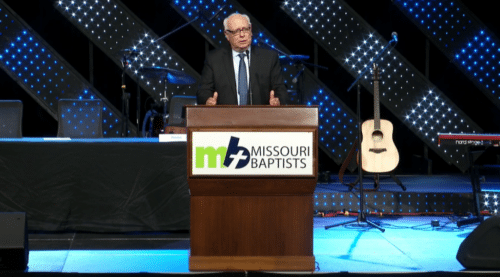
Screengrab as John Yeats addresses the Missouri Baptist Convention’s annual meeting on Oct. 25, 2021.
But in 2018, Yeats and the Executive Board changed course, insisting that the school could no longer nominate its own trustees for messengers’ prayerful consideration. Instead, they held a secret list of their own nominees for SBU’s Board whose primary loyalty was to Yeats and the Executive Board, not the school. Many had no prior experience with SBU whatsoever. Yeats and the Executive Board even insisted the SBU trustees approve a restructuring that would effectively hand ownership of the school, its endowment, and all of its other assets to the MBC — for free! That, of course, would have violated those trustees’ fiduciary duties. And that attempted restructuring was cited in HLC’s letter notifying the school of its probation.
The HLC sent a Comprehensive Evaluation team to SBU this Spring to determine if SBU has remedied the deficiencies HLC identified in its 2021 probation letter. Many observers worry SBU’s MBC-controlled trustees — which denied tenure to certain faculty, conducted their own inquisitions into various faculty members’ classroom activities, and instituted multiple creeds that faculty must pledge allegiance to — still have not met the HLC’s criteria requiring trustee independence, academic freedom, free expression of ideas, and delegating managing authority to the school’s administration. (Two years ago, SBU’s faculty even voted no confidence in the board of trustees, although the vote was later rescinded on procedural grounds.)
HLC meets next in November — shortly after the MBC’s annual meeting — to determine whether SBU will retain its accreditation. (It meets next November for a decision on HLGU’s accreditation.) A dramatic action this October by the MBC’s messengers to return control of its affiliated universities to the schools themselves, along with a binding commitment to allow those schools to nominate their own trustees based on their own assessments of their needs, might help ensure that MBC-affiliated schools will actually retain their academic accreditation.
Anything short of that likely means John Yeats’s most enduring legacy will be the loss of accreditation of two historically strong Missouri institutions of higher learning.
Russell Jackson, a 1987 graduate of Southwest Baptist University, is an attorney in St. Louis, Missouri. He filed a complaint about MBC actions at SBU that sparked an inquiry by SBU’s accreditation body, and he served as the attorney for an intervenor in a Polk County case involving SBU’s governing documents.

